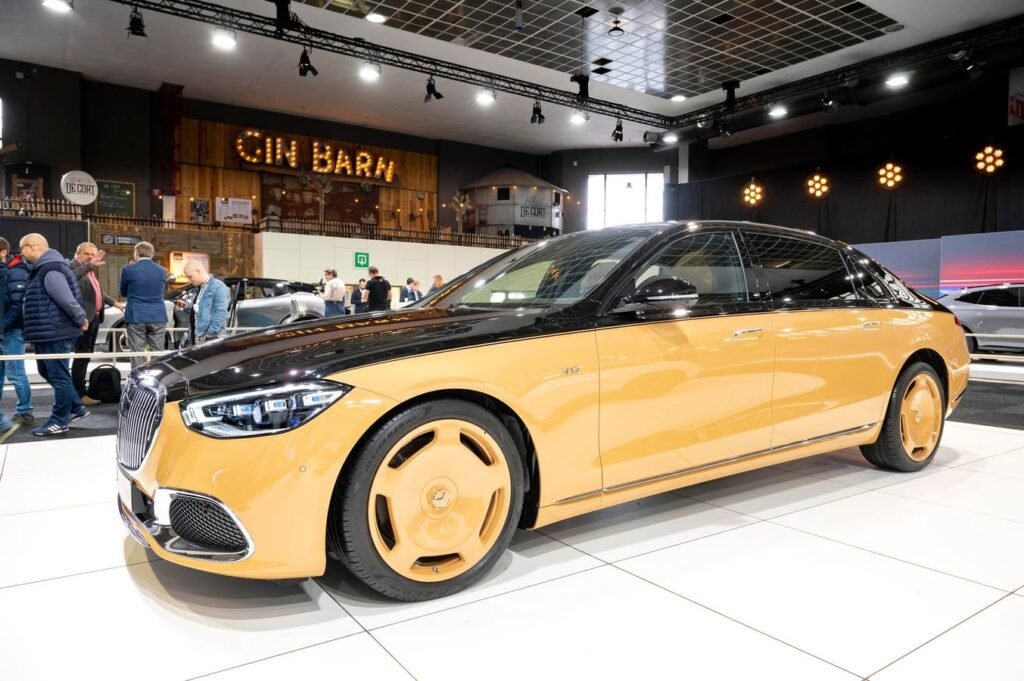Mercedes-Maybach S680 luxury sedan. (Photo: Sjoerd van der Wal/Getty Images)
Mercedes has become the latest German car giant to cut its profit outlook, hit by a weakening European market, growing competition in China and sluggish sales of electric vehicles.
One analyst said German automakers would have to seek cooperation deals with Chinese manufacturers to close the technology gap.
Mercedes cut its 2024 profit forecast to a range of 7.5% to 8.5% from a previous estimate of up to 11%. BMW in early September cut its profit forecast to 6% from a previous forecast of 8% to 10%.
In a report titled “Rough Weather for Mercedes”, investment research firm Jefferies said the production cuts were not unexpected, but their scale was.
Investors didn’t seem too upset because BMW’s decision was related to a single quantifiable issue – the recall of 1.5 million vehicles to fix defective brakes – but BMW also warned about the worsening situation in China.
The multi-brand Volkswagen is feeling the pressure, forcing it to consider closing a factory for the first time in its 87-year history. Volkswagen needs to significantly increase sales of electric vehicles next year or face huge fines for violating European Union carbon dioxide emissions limits.
GlobalData has been relentlessly lowering its sales forecast for Western Europe, predicting growth of just under 5% four months ago, and now its latest forecast sees a slight contraction, down 0.4% compared to last year, with total sales peaking at 11.51 million units in 2024.
German carmakers have fallen behind in the development of electric cars, their batteries and their software, according to Professor Ferdinand Dudenhofer, director of the Center for Automotive Research (CAR), and the government is making the problem worse.
“China is increasingly becoming the biggest test ground in the last 50 years. More than half of new cars in China are electric (compared to well below 20 percent in Europe). Germany and Europe are missing out. Industrial policies in Berlin and Brussels are making the problem worse,” Dudenhofer said in a statement assessing similar measures at BMW and Mercedes’ profit downgrade after VW’s restructuring plan.
Dudenhofer said the sheer size of the Chinese market — about 7 million EVs will be sold in China this year, compared with 1.3 million in Europe — gives Chinese EV makers a big cost advantage.
“Politicians in Brussels and Berlin have squandered our local advantage,” Dudenhofer said.
Mercedes-Benz S-Class Cabriolet. (Photo by DANIEL ROLAND/AFP via Getty Images)
According to a Financial Times Lex column, the luxury German automaker is suffering as China’s sluggish property market curbs spending on top-of-the-line vehicles like the Mercedes S-Class and Maybach, whose prices in Europe start at nearly $200,000 after tax.
Rex sees little chance of an economic recovery in China.
“There is little prospect of a recovery in China’s property market. As growth slows, competition from electric and internal combustion engine vehicles may intensify. Moreover, if the European Union goes ahead with plans to impose import tariffs on Chinese-made electric cars, luxury cars such as Maybachs that Mercedes exports to China could be hit with counter-tariffs. It looks like a tough road ahead,” Rex said.
The same logic applies to BMW and VW’s subsidiaries Audi, Porsche, Bentley and Lamborghini.
In a report titled “Mercedes: China Weakness Leads to Further Profit Downgrade,” investment research firm Bernstein said Mercedes was taking a slightly more cautious stance than BMW.
“Mercedes did not provide any update beyond 2025, simply saying it would provide an update later this year, but this is in stark contrast to BMW, which has stated it will be back in its strategic margin range by 2025,” the report said.
Dudenhofer said German automakers have to make some strategic decisions: They must pour more money into their Chinese operations to close the cost gap and look for partners to close the technology gap.
“The only thing German manufacturers can do is to invest more in China to expand development centres and production of electric vehicles. EV technology currently comes from China and it has a “natural competitive advantage” – just like we have a natural competitive advantage with the internal combustion engine.”
“The only way to regain lost ground is through more cooperation with China, with suppliers and automakers,” Dudenhofer said.




